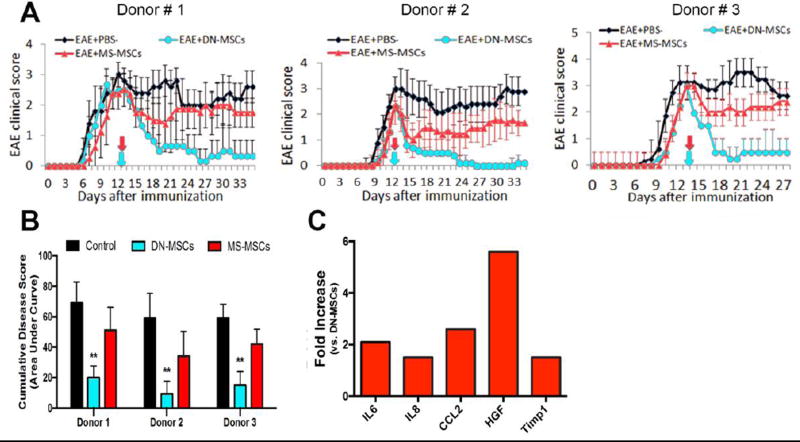Figure 6. MS-MSCs lack therapeutic efficacy compared to naïve MSCs in modulating EAE.
(A) MSCs derived from MS patients (MS-MSCs) are less effective at improving functional recovery when transplanted into EAE mice compared to naïve MSCs (DN-MSCs) derived from healthy donors. MOG35–55 induced EAE mice were infused with 1×10^6 MSCs at 14 days post EAE induction (arrows), with MS-MSCs derived from 3 separate donors diagnosed with relapsing-remitting MS and DN-MSCs derived from corresponding sex and age-matched healthy donors. Data shown = mean ± SEM, n = 11–13 mice per group. (B) EAE mice treated with DN-MSCs from each of the respective donors show a significant reduction in cumulative disease scores (area under the curve), whereas EAE mice treated with MS-MSCs show no significant difference versus saline treated controls. Data shown = mean + SEM, **P<0.01, One-way ANOVA. (C) Fold changes of proteins increased in conditioned medium from MS-MSCs relative to naïve MSCs; note conditioned medium from MS-MSCs contains higher levels of pro-inflammatory cytokines, including IL-6, IL-8, and CCL2. Fold changes were calculated by comparing spot intensity values from 2 separate antibody arrays per group, with each array treated with an independent sample. No fold decreases of any cytokine tested were observed in the arrays.

